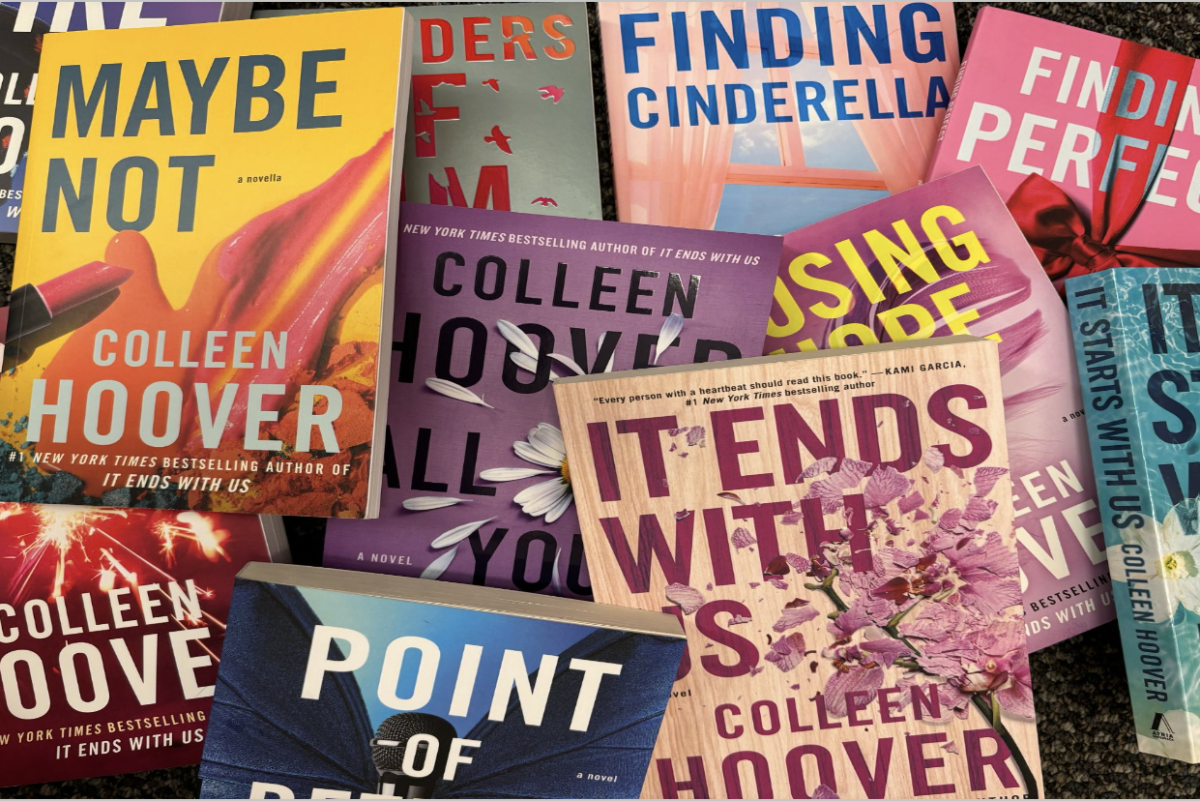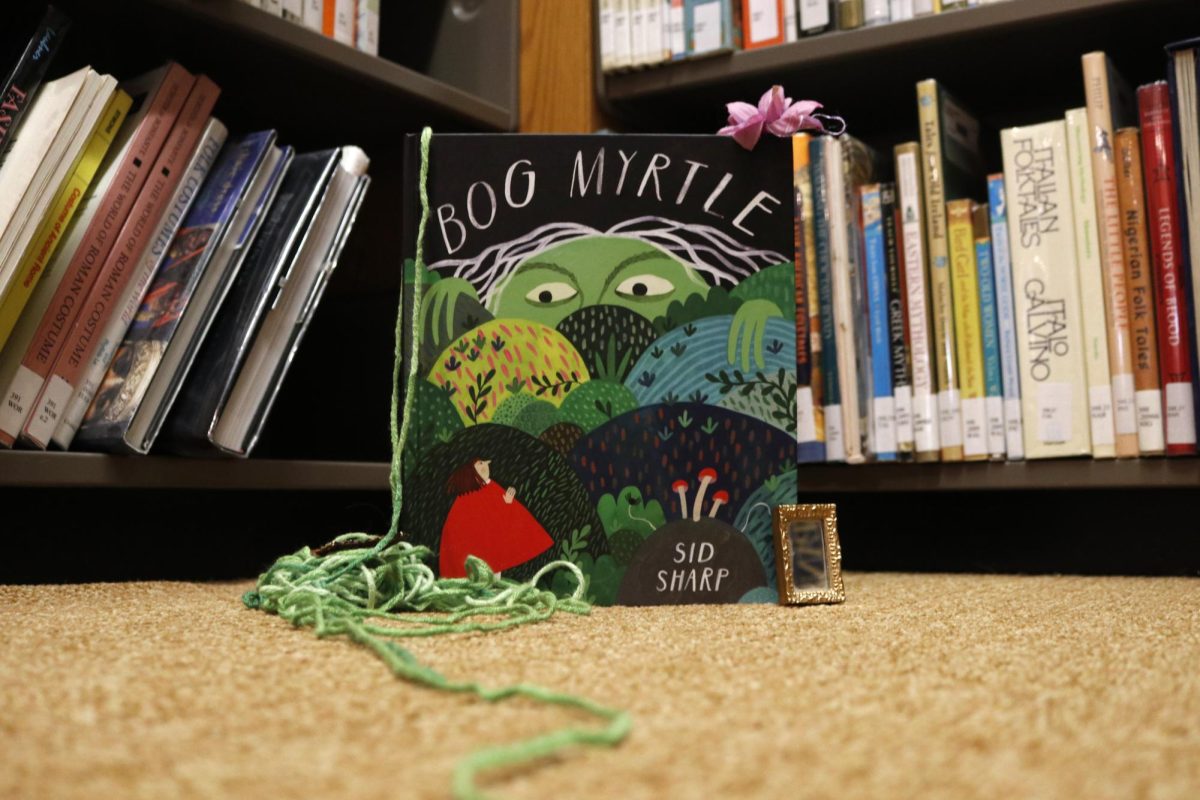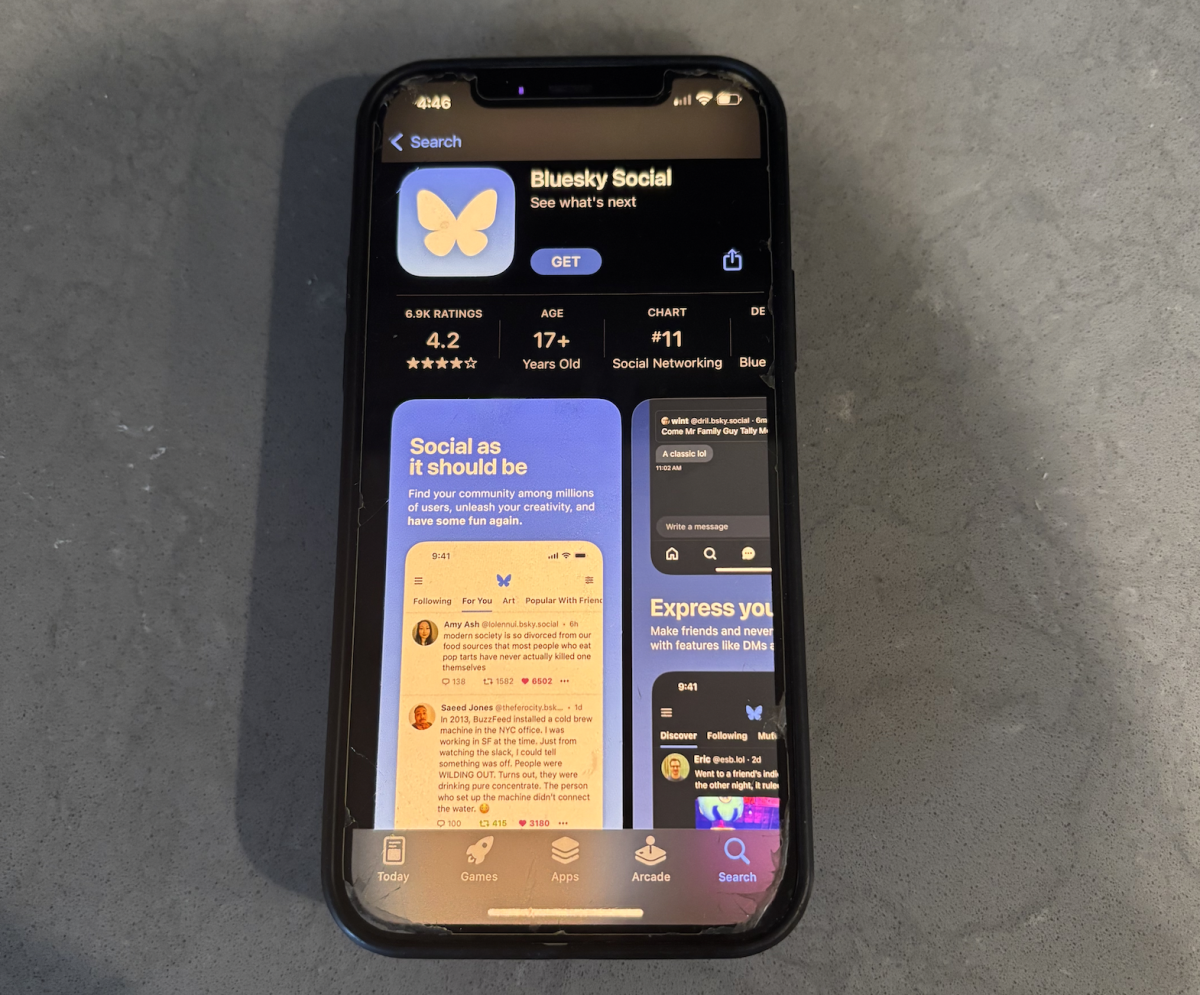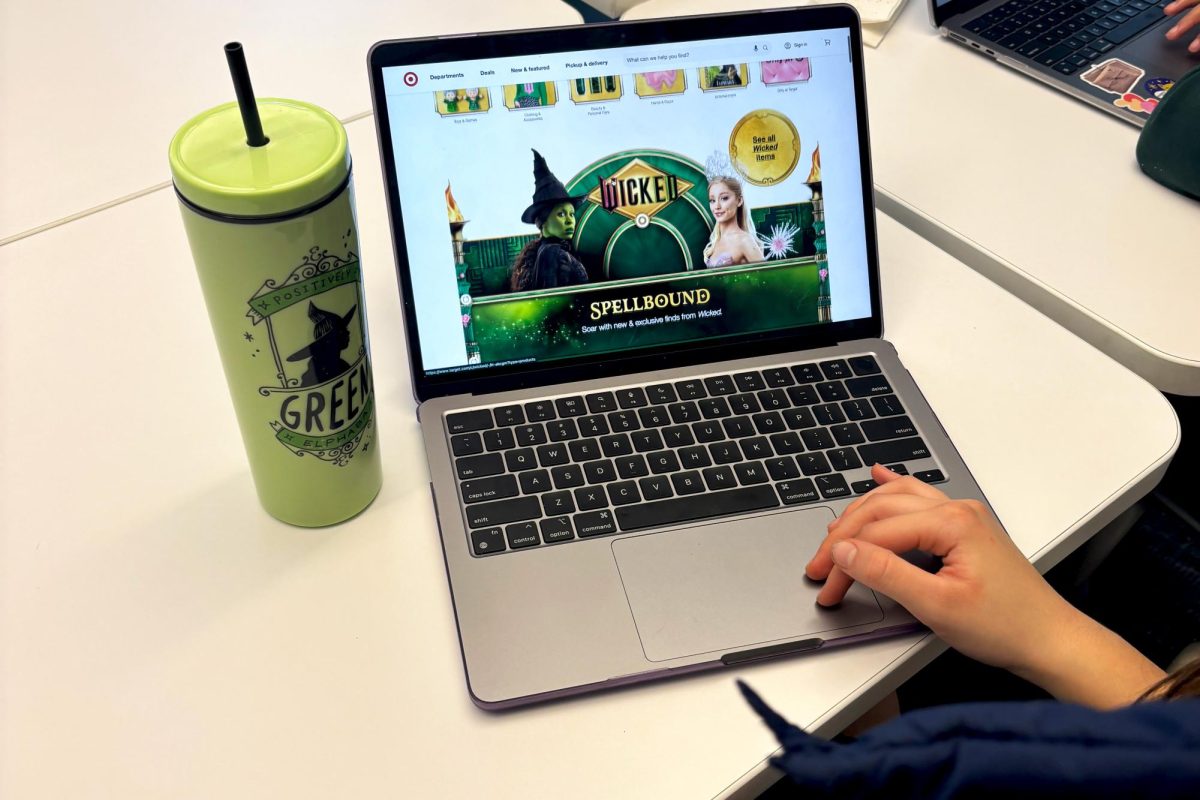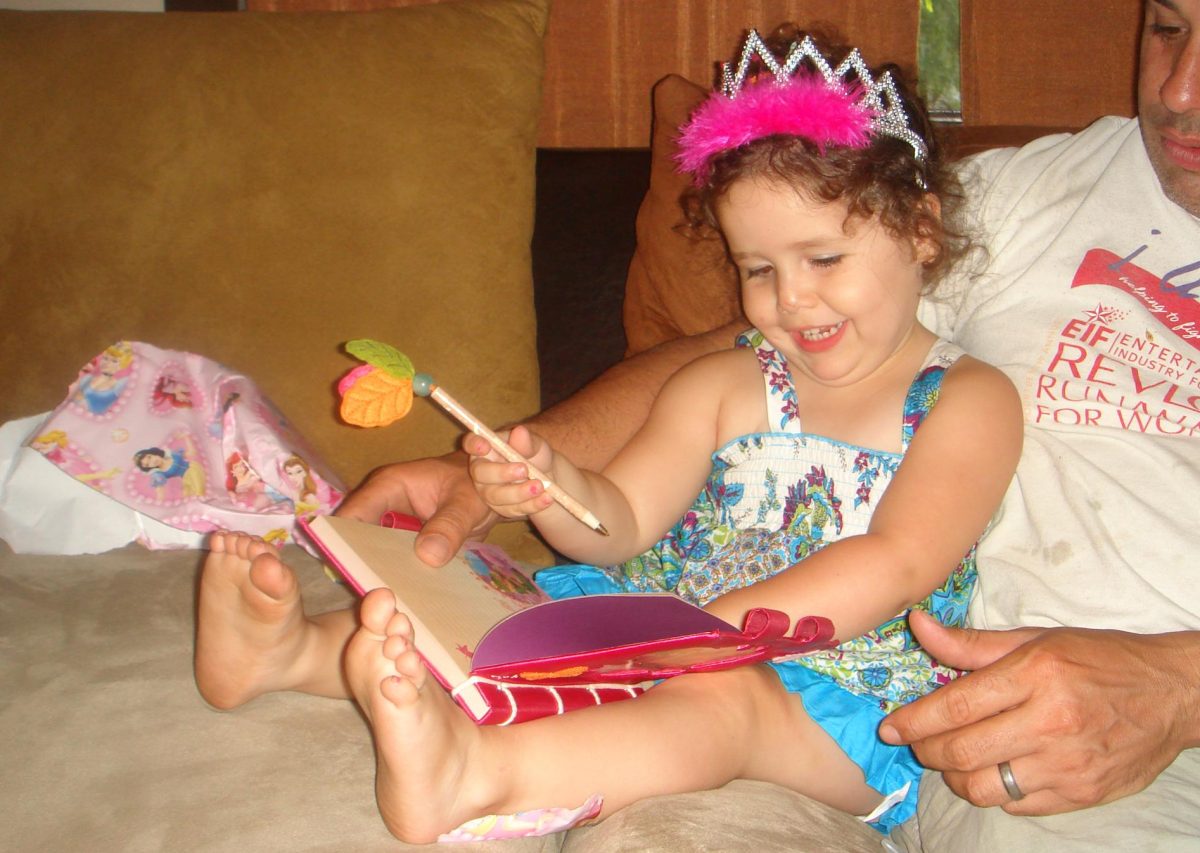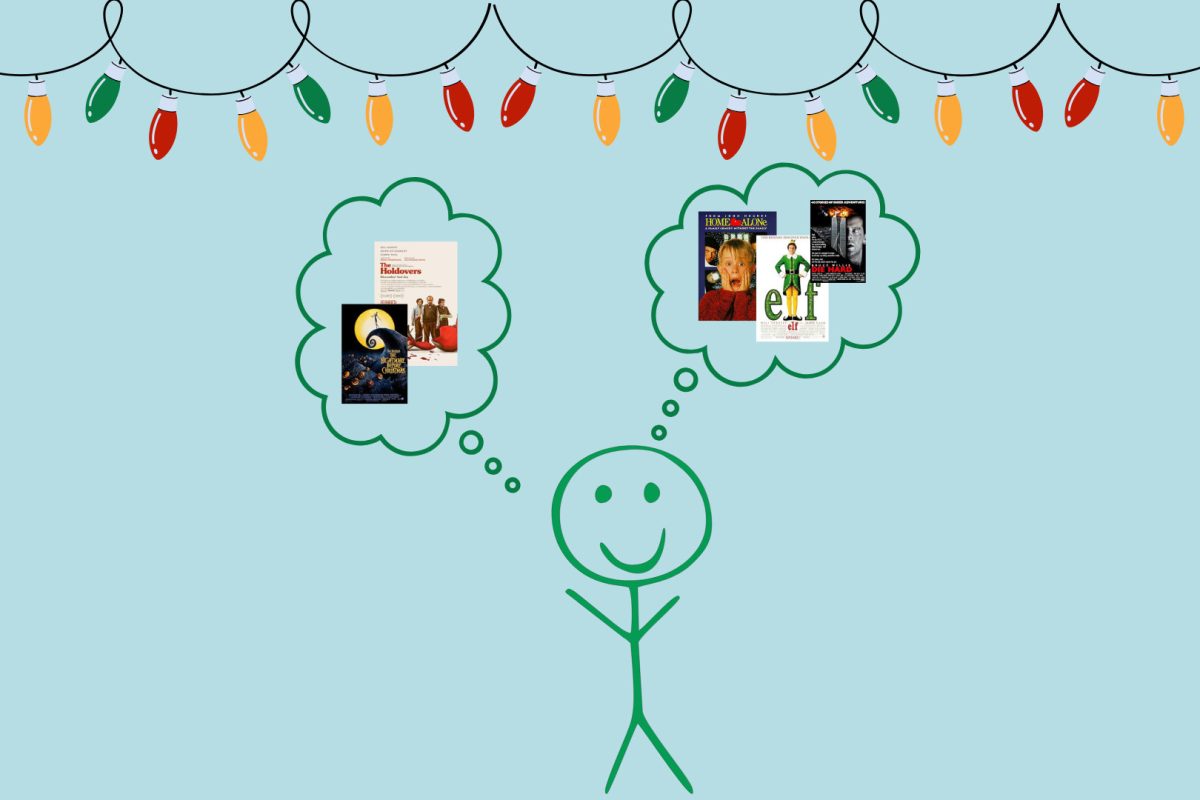Disclaimer: Colleen Hoover’s novels contain mature, sensitive and sexual themes and may not be suitable for younger readers.
You can find this writer’s works in the hands of young adults all over airports, high schools and colleges, on vacations, and, most popularly, at summer camps. The strangely beloved, and for some reason, idolized: Colleen Hoover.
I was initially hesitant to openly criticize what is a trendy collection of books among my peers — Hoover’s candy-colored novels became a well-known franchise following the release of her self-published hit “Slammed” in 2012. Ironically, readers obsess over these books like kids in a candy store, and they soon became popular all over “BookTok” — a subsection of TikTok dedicated to sharing and discussing all things related to books. Due to their colorful exteriors and themes of romance, readers and viewers made reading Hoover’s works an “aesthetic,” skyrocketing their popularity.
Amidst the jurisdiction Hoover’s novels had created, I caved to the craze. But despite their colorful exteriors, the novels themselves lacked any facets of a good book. The recycled romances built on trauma bonds have an incredibly detrimental portrayal of “love.” The mainstream romance of the novels targets teenage and young adult romance readers but displays a harmful rhetoric advertised to impressionable teens.
If it wasn’t already clear, I am far from Colleen Hoover’s biggest fan.
One of Hoover’s most popular books, “It Ends With Us,” features this classic relationship trope. The book focuses on the love triangle between Lily Blossom Bloom, who owns a flower shop (obviously), her childhood love — the homeless boy who camped out in her backyard — and the pretentious, severely mentally damaged doctor, Ryle Kincaid. And I can’t forget to mention the fourth essential character in the book, to whom Lily writes letters as a coping mechanism, the one and only: Ellen Degeneres. I can only hope my enthusiasm for this novel comes off as sarcastic as I intended.
Ryle and Lily bond over their traumatic pasts, a common and contentious theme among Hoover’s novels. Lily is haunted by memories of her father’s abusive relationship with her mother, and Ryle is burdened with the guilt of accidentally shooting and killing his brother! Safe to say, in mixing the two, it certainly won’t be a fairytale romance.
As the book progresses, Ryle continuously lashes out against Lily, mirroring her parent’s dysfunctional relationship. Hence the line: “It ends with us,” one of the many redundant Pinterest quotes used in Hoover’s writing. My personal favorite line from the book, quoted from the cinematic blockbuster, “Finding Nemo,” is “Just keep swimming.” Another “iconic” quote from a Hoover novel, “Ugly Love,” which the protagonist says in reference to their newborn son (let that sink in): “We laughed at our son’s big balls.” It’s poetic, really.
The dynamics of the relationships explored in Hoover’s writing use the “I can fix him” mentality in response to abusive and manipulative behavior. The exploitation of trauma for dramatic effect in her writing sets a bad precedent for relationships among the young viewers who idolize Hoover and her characters. It almost romanticizes abuse, convincing viewers to idolize and justify abusive relationships.
Additionally, her books are all practically copied and pasted storylines set in different environments, all containing triggering plot points, leading to severe predictability. Each story combines two misunderstood teenagers finding true love with one another, the difference being in their varied traumatic pasts.
Hoover’s romanticized advertising of abuse, mediocre prose and copy-and-pasted tropes mix to create disturbing, not wonderful, romances. All in all, if you’re browsing the Colleen Hoover shrine at your local Barnes and Noble contemplating if it’s worth the “hype,” just keep swimming.



